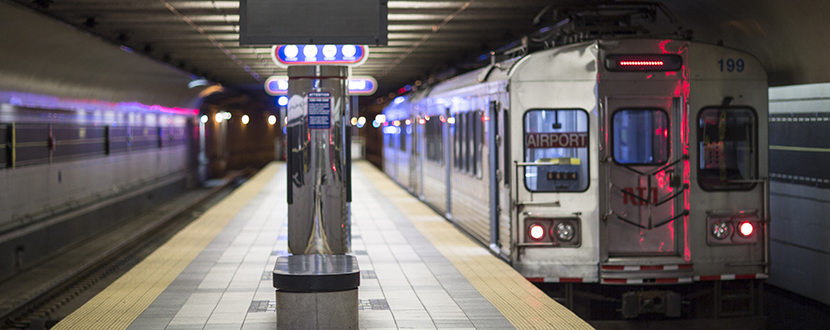RTA riders rally against fare hike
The RTA fair increase was met with dissatisfaction from Cleveland residents and regular customers.
Upon the announcement of an upcoming RTA fare increase, Clevelanders for Public Transit (CPT) volunteer Emily Needles distributed information to inform RTA users of the expected price change. CPT is a riders’ based organization advocating for better public transit.
Reactions to Needles’ pamphlets varied anywhere from surprise to indifference.
“I feel like Clevelanders are already pinched, [because they] already have the most expensive transit system in this country for a city this size,” Needles said, “and it doesn’t make sense to increase it any further.”
Emphasizing how people’s livelihoods are closely tied to the public transit system, she added, “For working people … if you can’t have transportation, you can’t have a job. It’s as simple as that.”
Chris Stocking, Volunteer Coordinator for CPT, explained that the organization rose out of the need to directly voice riders’ concerns and defend public transit from budget cuts.
“Transit cuts are coming, the state is not funding transit and no one is speaking up for transit riders,” he said. “[CPT volunteers] figured, if no one’s going to listen to us then we’re just going to do the work and build a movement [around public transit issues].”
Stocking also noted that CPT is unique in that it directly represents the riders as opposed to
advocacy groups, which mostly focus on state budget issues. He explained that the current goal of CPT is to inform riders about the upcoming fare hike, represent the riders at monthly board meetings and freeze the current rates. Ideally, CPT hopes to bring down the price of all-day passes to a flat five dollars.
The fare hike, scheduled this August, follows a fare hike which was implemented last August. Single-ride tickets will cost riders $2.75, up from $2.50, and all-day passes will cost six dollars, up from $5.50. The fare hike applies to a number of other plans, such as the monthly pass, which will cost $105, up from $95.
The increase in fares is to follow several cuts made to the RTA by March, such as discontinuing routes for some 2.5 million rides per year and eliminating 160 to 200 jobs. The cuts are to compensate for RTA’s revenue losses – about $20 million per year, or seven percent of its budget – after the state stopped collecting taxes on Medicaid-managed care services.
It is unclear as to whether or not RTA will consider the concerns of its riders and freeze the current rates before August. However, Stocking is optimistic.
He said, “We are trying to teach and organize riders to become their own advocates, and I really believe we can win.”


